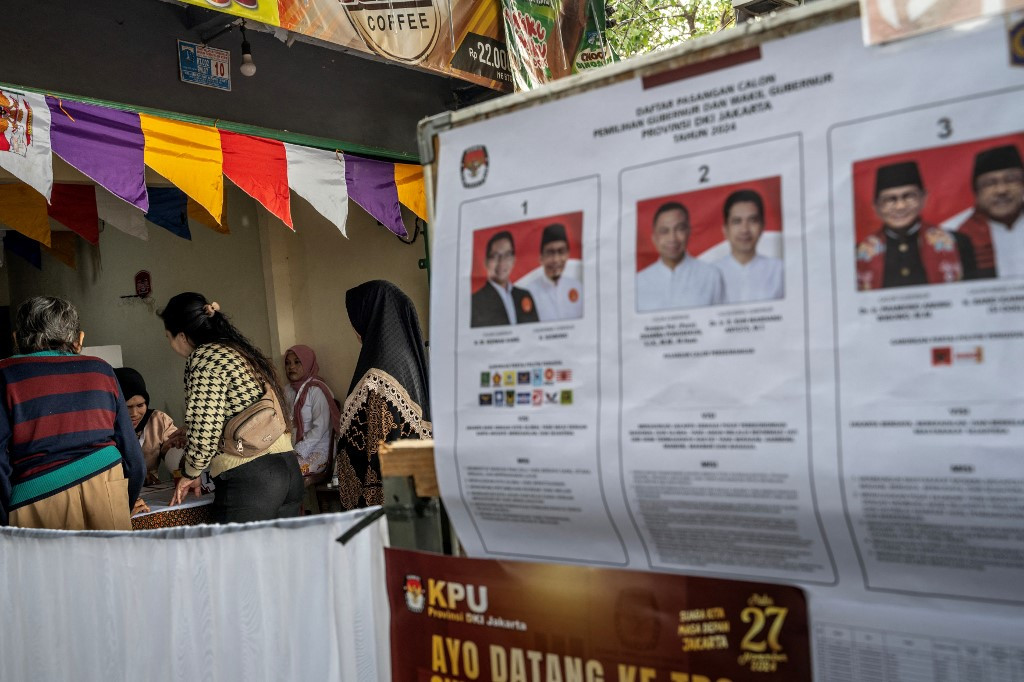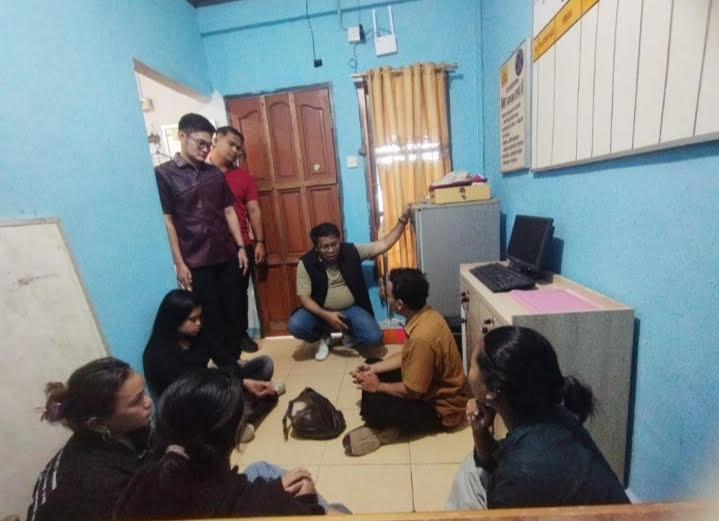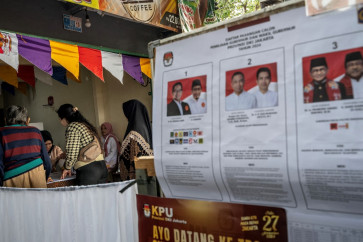Popular Reads
Top Results
Can't find what you're looking for?
View all search resultsPopular Reads
Top Results
Can't find what you're looking for?
View all search resultsPolitical parties divided over court ruling on direct regional elections
The recent Constitutional Court ruling that upholds direct regional head elections has been met with divisive reactions from political parties in the House of Representatives, with those pushing for an indirect election giving no assurance that they would drop their campaign.
Change text size
Gift Premium Articles
to Anyone
 Democracy at work: Workers at a polling station in Jakarta check voters' administrative details on Nov. 27 before people cast their ballots in the 2024 regional head elections, which was conducted simultaneously for the first time across 37 provinces and more than 500 cities and regencies. (AFP/Bay Ismoyo)
Democracy at work: Workers at a polling station in Jakarta check voters' administrative details on Nov. 27 before people cast their ballots in the 2024 regional head elections, which was conducted simultaneously for the first time across 37 provinces and more than 500 cities and regencies. (AFP/Bay Ismoyo)
T
he recent court ruling that upholds direct regional head elections has been met with divisive reactions from political parties, with those pushing for an indirect poll giving no assurance that they would drop their campaign to return to the old system in place during the authoritarian New Order regime.
Last Thursday, in its judicial opinion issued as part of a ruling on the minimum votes for candidates to win regional elections, the Constitutional Court said governors, mayors and regents are elected directly by people every five years, just like in the presidential and legislative elections.
The ruling came on the heels of growing efforts by politicians from pro-government political parties in recent months to scrap direct regional elections to cut costs, in favor of having governors, regents and mayors be appointed by regional legislatures (DPRDs) at the provincial and municipal or regental level instead.
Direct elections have been in place since 2005 as part of the reform and decentralization process instituted after the 1998 fall of the New Order regime under the country’s longtime leader, Soeharto, former father-in-law of President Prabowo Subianto.
Critics say that the proposal to abolish direct elections will undermine the country’s hard-won democratic progress and push the country toward a semi-authoritarian state.
But proponents of indirect elections, such as pro-government Golkar Party and the National Awakening Party (PKB), continue to show their support for the old system even though they are still discussing internally whether or not to change their stance following the court ruling amid a plan to revise the election law in the House of Representatives.
“Regional autonomy lies in the regencies and cities, whereas provincial administrations are simply an extension of the central government,” Golkar deputy chair Ahmad Doli Kurnia told The Jakarta Post on Monday. “Thus, their election models should differ.”


















